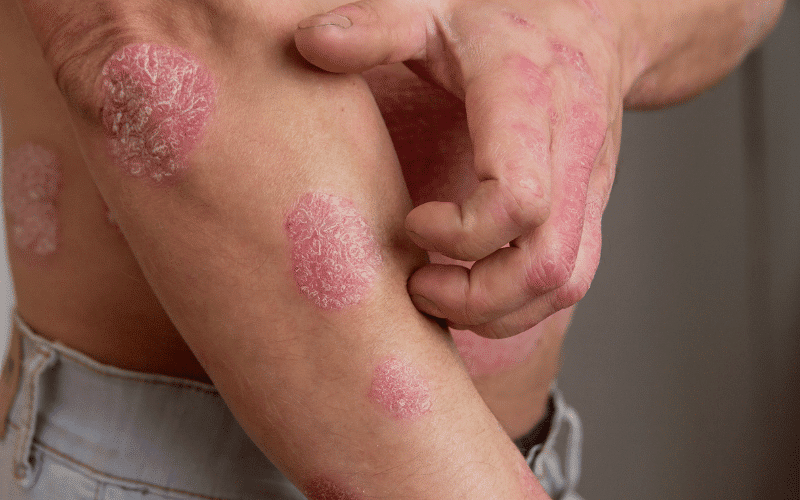Disease 3. Psoriasis: An Immune-Mediated Skin Condition

Symptoms of Psoriasis
Psoriasis is a chronic skin condition that causes cells to build up rapidly on the skin’s surface, forming thick, red, scaly patches that can be itchy and sometimes painful. These patches can appear anywhere on the body but are most commonly found on the scalp, elbows, knees, and lower back. In some cases, psoriasis can also affect the nails, causing pitting, thickening, and discoloration.
Causes of Psoriasis
Psoriasis is an immune-mediated condition, meaning that it occurs when the immune system mistakenly attacks healthy skin cells. While the exact cause is unknown, both genetic and environmental factors are believed to contribute to the development of psoriasis. Triggers for psoriasis flare-ups can include stress, skin injuries, infections, and certain medications.
Treatment Options for Psoriasis
There is no cure for psoriasis, but various treatments can help manage symptoms and improve the skin’s appearance. Topical treatments, such as corticosteroids, vitamin D analogs, and retinoids, can be effective in reducing inflammation and slowing skin cell growth. Phototherapy, which involves exposing the skin to ultraviolet light, can also be beneficial for psoriasis. In more severe cases, systemic medications, including oral and injectable drugs that target the immune system, may be prescribed. (3)